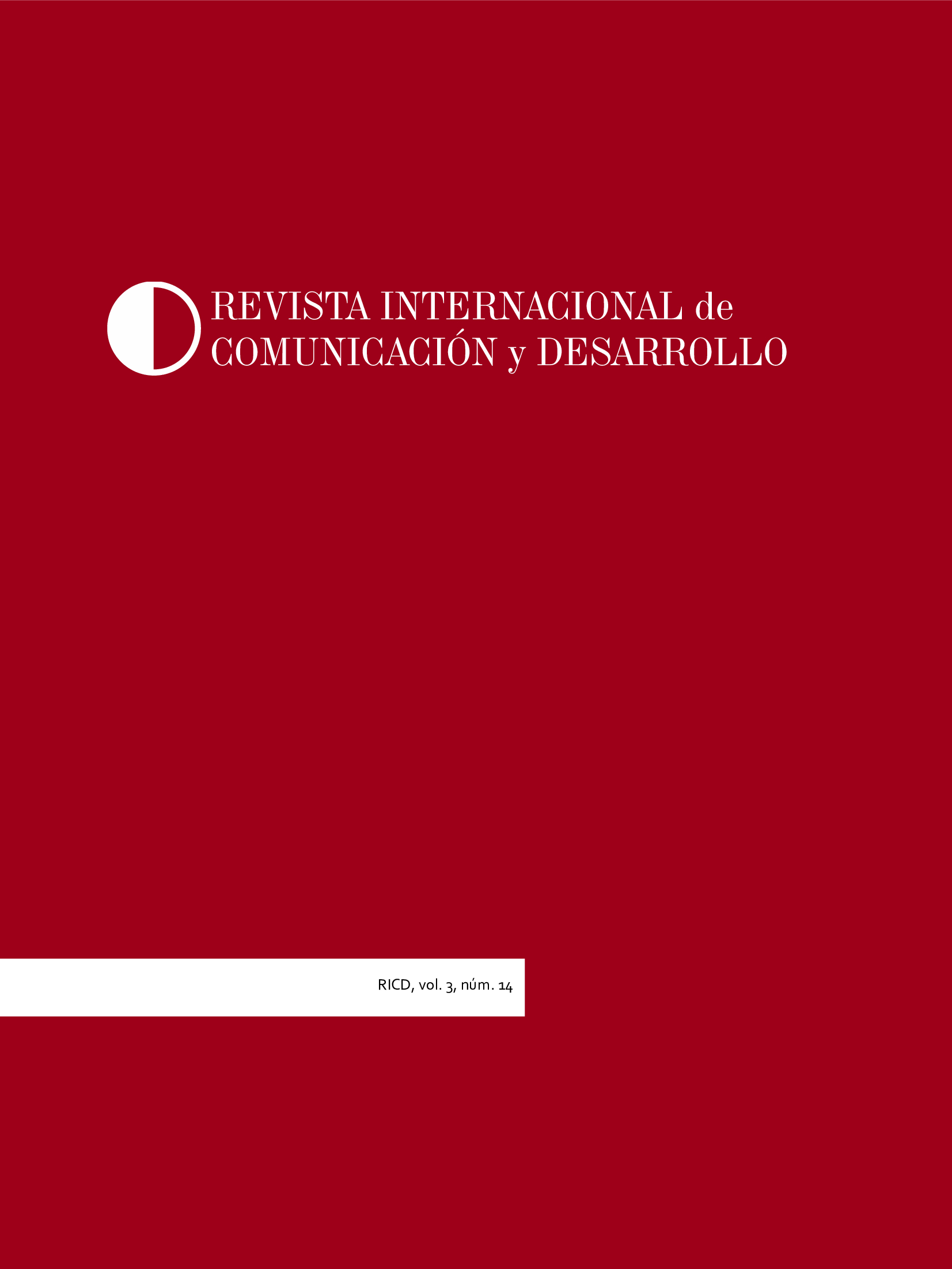SDG 8: Economic growth and its difficult place in the 2030 Agenda
Main Article Content
Abstract
The 2030 Agenda and the Sustainable Development Goals (SDGs) call for profound changes to address development challenges of all kinds at the global level. This ambitious starting point is not without its problems, including doubts about its implementation, or possible contradictions between the goals themselves. This article studies the implications of SDG 8, which, together with employment, proposes economic growth as a mechanism for advancing in the fulfillment of the Agenda and its objectives. Based on a review of the concept of growth in the framework of development theories, it analyses possible conflicts with other SDGs focused on social or environmental objectives.
Keywords:
Article Details
References
Aguilera, F. (2010). La economía como sistema abierto: de la disociación a la integración. Revista Sustentabilidad(es), 1(2), 28-49. https://issuu.com/ris_2009_viregional/docs/sustentabilidades-02.
Aguilera, F. y Alcántara, V. (comp.) (2011 [1994]). De la Economía Ambiental a la Economía Ecológica (Edición electrónica revisada). CIP-Ecosocial-FUHEM. https://www.fuhem.es/media/ecosocial/File/Actualidad/2011/LibroEA_EE.pdf.
Banco Mundial (2021). World Development Indicators. https://databank.bancomundial.org/source/wdi-database-archives-(beta).
Bermejo, R. (2001). Desarrollo Sostenible y Humano. En Ibarra, P., y Unceta, K. (coords.), Ensayos sobre el Desarrollo Humano (pp. 137-169). Icaria.
Carpintero, O. (2020). Economía para la sostenibilidad. En Enríquez, J.M., Duce, C. y Miguel, L.J. (coords.), Repensar la sostenibilidad (pp. 245-265). UNED.
Castro (de), C. y Capellán, I. (2020). Ciencia y tecnología para la sostenibilidad. En Enríquez, J.M., Duce, C. y Miguel, L.J. (coords.), Repensar la sostenibilidad (pp. 295-318), Madrid: UNED.
Cavalcanti, C. (2010). Conceptions of Ecological Economics: its Relationship with Mainstream and Environmental Economics. Estudos Avançados, 24(68), 53-67. https://doi.org/10.1590/S0103-40142010000100007.
Daly, H. (1999). Ecological economics and the ecology of economics: essays in criticism. Edward Elgar Publishing.
Dittrich, M., Giljum, S., Lutter, S. y Polzin, C. (2012). Green economies around the world? Implications of resource use for development and the environment. Sustainable Europe Research Institute. https://www.boell.de/sites/default/files/201207_green_economies_around_the_world.pdf.
Etxano, I. y Herrera, A.F. (2020). Objetivos de Desarrollo Sostenible (ODS) y las perspectivas de la Sostenibilidad. Galde (Dossier: Los ODS y la Agenda 2030 a debate), (28), 45-47. https://www.galde.eu/es/agenda-2030-objetivos-de-desarrollo-sostenible-ods-y-las-perspectivas-de-la-sostenibilidad/.
Fischer-Kowalski, M. (1998). Society’s Metabolism. The Intellectual History of Materials Flow Analysis, Part I, 1860-1970. Journal of Industrial Ecology, 2(1), 61-78. DOI: https://doi.org/10.1162/jiec.1998.2.1.61.
Fischer-Kowalski, M. (2003). On the History of Industrial Metabolism. In Bourg, D. & Erkman, S. (eds.). Perspectives on Industrial Ecology (pp. 35-45). Greenleaf Publishing.
González, L. (2020). La crisis ambiental: economía y sociedad. En Enríquez, J.M, Duce, C., Miguel, L.J., Hernández-Umaña, B., Leiva, A. y Sáenz, H. (eds.). Progreso y bienestar. De las ideas sobre el progreso social a las políticas públicas de bienestar (y su declive) (pp. 39-53). Universidad de Valladolid.
Gudynas, E. (2010). Desarrollo sostenible: una guía básica de conceptos y tendencias hacia otra economía. Otra Economía, IV(6), 43-66. https://www.revistaotraeconomia.org/index.php/otraeconomia/article/view/1182.
Hamilton, C. (2006). El fetiche del crecimiento. Ed. Laetoli.
Hamilton, K. & Clemens, M. (1999). Genuine Savings Rates in Developing Countries, The World Bank Economic Review, 13(2), 333-56. https://doi.org/10.1093/wber/13.2.333.
Hickel, J. (2019). The contradiction of the sustainable development goals: Growth versus ecology on a finite planet. Sustainable Development, 27(5), 873–884. https://doi.org/10.1002/sd.1947.
Hickel, J. & Kallis, G. (2020). Is Green Growth Possible?. New Political Economy, 25(4), 469-486. https://doi.org/10.1080/13563467.2019.1598964
Hoekstra, A. & Wiedmann, T. (2014). Humanity’s unsustainable environmental footprint. Science, 344(6188), 1114-1117. https://doi.org/10.1126/science.1248365.
Martínez-Alier, J. (2003). Ecología industrial y metabolismo socioeconómico: concepto y evolución histórica. Economía Industrial, (351), 15-26. https://dialnet.unirioja.es/servlet/articulo?codigo=891415.
Martínez-Alier, J. y Roca, J. (2001). Economía Ecológica y Política Ambiental. Fondo de Cultura Económica.
Meadows, D. H., Meadows, D. L., Randers, J. y Behrens, W. W. (1972). Los límites del crecimiento. Fondo de Cultura Económica.
Milanovic, B. (2016). Inequality: A New Approach for the Age of Globalization. Harvard University Press.
Naredo, J.M. (2010). Raíces económicas del deterioro ecológico y social. Más allá de los dogmas (2da Edición). Siglo XXI.
O’Neill, D., Fanning, A., Lamb, W. & Steinberger, J. (2018). A good life for all within planetary boundaries. Nature Sustainability, 88(1), 88-95. https://doi.org/10.1038/s41893-018-0021-4.
Panel Internacional de Recursos (2021). Global Material Flows Database. https://www.resourcepanel.org/global-material-flows-database.
Pearce, D. & Atkinson, G. (1993). Capital Theory and the Measurement of Sustainable Development: An Indicator of Weak Sustainability. Ecological Economics, 8(2), 103-108. https://doi.org/10.1016/0921-8009(93)90039-9.
Piketty, T. (2020). Capital and ideology. Harvard University Press.
PNUD (2020). Informe sobre Desarrollo Humano. http://www.hdr.undp.org/en/data.
Stiglitz, J. E., Sen, A., y Fitoussi, J. P. (2008). Informe de la Comisión sobre la Medición del Desarrollo Económico y del Progreso Social. https://www.fundacionhenrydunant.org/images/stories/biblioteca/Politicas-Publicas/Commission%20Stiglitz_ES.pdf.
Unceta, K. (2009). Desarrollo, Subdesarrollo, Maldesarrollo y Postdesarrollo: una mirada transdisciplinar sobre el debate y sus implicaciones. Carta Latinoamericana (Contribuciones en Desarrollo y Sociedad en América Latina), (7), 1-34. http://www.cartalatinoamericana.com/numeros/CartaLatinoAmericana07Unceta09.pdf.
Unceta, K. (2018). Alcance y vigencia del postdesarrollo: de la crítica al desarrollo al debate sobre las transiciones. Ecuador Debate, (103), 61-78. http://hdl.handle.net/10469/15217.
Unceta, K. y Gutiérrez-Goiria, J. (2016). ¿Se hace camino al andar? Las estrategias de desarrollo, los ODM y la paradoja China. Revista de Economía Mundial, (44), 59-75. https://www.redalyc.org/pdf/866/86649060004.pdf.
WCED, World Commission on Environment and Development (1987). Our Common Future. Oxford University Press.
Wiedmann,T., Schandl, H., Lenzen, M., Moran, D., Suh, S., West, J. & Kanemoto, K. (2015). The material footprint of nations, PNAS, 112(20), 6271–6276. https://doi.org/10.1073/pnas.1220362110.






